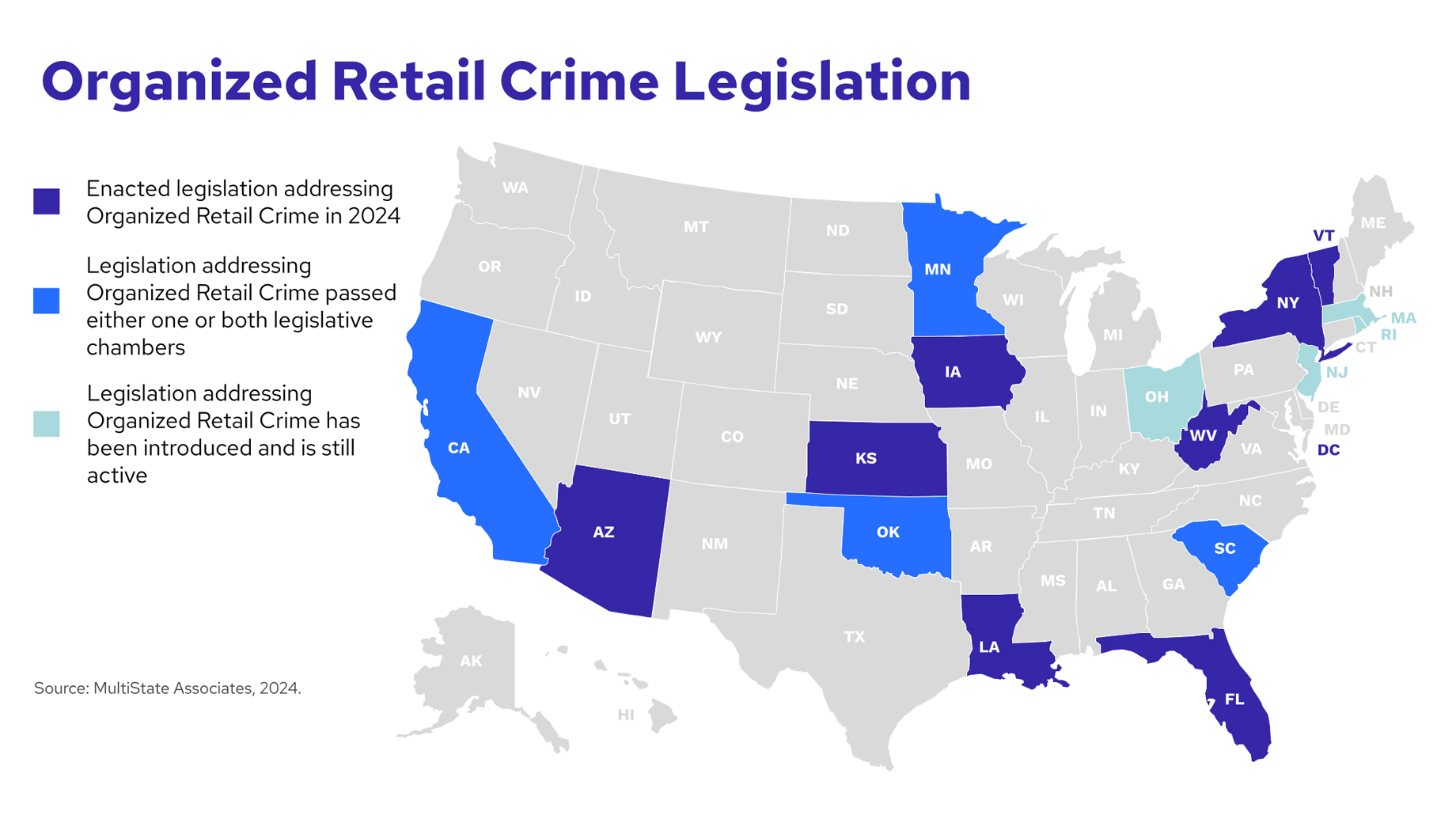The ongoing battle to combat organized retail crime continues to be a major priority for law enforcement and state lawmakers. Lawmakers in eight states (Arizona, Florida, Iowa, Kansas, Louisiana, New York, Vermont and West Virginia) plus D.C. have enacted 13 pieces of legislation this year on a range of solutions targeting retail theft networks. Most measures considered tried to achieve one of the following objectives: 1) provide more flexibility for prosecutors to charge offenders with the total value of stolen goods across multiple jurisdictions, 2) increase funding for law enforcement to investigate ORC cases, and/or 3) enforce tougher punishment for repeat offenders.
Lawmakers have been more aggressive in advancing proposals to allow multiple thefts to be counted towards tougher sentences. Typically, theft aggregation laws have allowed prosecutors to charge thieves with the total value stolen across a 60- or 90-day period. Enacted bills in Florida (FL HB 549), Iowa (IA HF 2594) and Kansas (KS HB 2144) significantly expanded this window to allow law enforcement more time to target sophisticated criminal networks. In the case of Florida and Kansas, law enforcement now have up to 12 months to aggregate the total value of thefts.
New York lawmakers enacted key ORC measures in the state’s FY25 budget (SB 8305/AB 8805 and AB 8809/SB 8309), including funding to create an ORC Task Force, tax credits for security cameras for store owners and allowing prosecutors to aggregate the value of multiple thefts. The budget package also provided protections for store employees by making the charge of assaulting a retail worker a felony offense.
And finally, in California, 12 bills aimed at addressing the state’s spike in retail theft remain alive following the May 24 legislative crossover deadline. Governor Gavin Newsom (D) and legislative leaders are motivated to bypass an ongoing ballot initiative effort to reform Proposition 47. The proponents of the ballot initiative, Californians for Safer Communities Coalition, have already submitted over 900,000 signatures to qualify for the ballot and are awaiting approval from the Secretary of State for the measure to appeal on the November 5 ballot.
